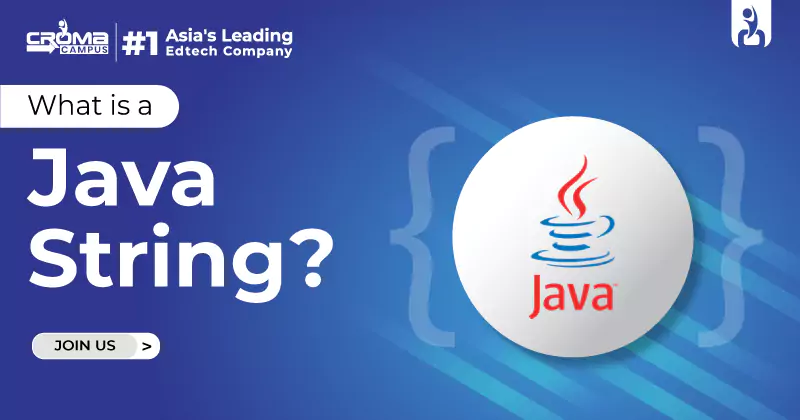Job Opportunities For .Net Full Stack Developer
4.9 out of 5 based on 5244 votesLast updated on 2nd Feb 2023 9.6K Views
- Bookmark

For .Net Full Stack Developer there is a wide range of job opportunities available in various industries. To know more about the job opportunities read this post.

Dot NET is a development platform created by Microsoft for building a variety of applications, including web, desktop, and mobile applications. It includes a large library of pre-written code, known as the Framework Class Library (FCL), as well as a runtime environment (CLR) that manages the execution of code written in languages such as C# and Visual Basic. The .NET framework supports several programming languages and allows for interoperability between them. It also includes tools for developing and deploying applications, such as Visual Studio.
Features of Dot Net
Dot NET framework has several features that make it a popular choice for building a variety of applications, including:
- Language interoperability: .NET supports multiple programming languages, such as C#, Visual Basic, and F#, which allows developers to use their preferred language to build applications.
- Base Class Library (BCL): .NET provides a rich set of pre-written code, known as the BCL, which can be used to perform common tasks such as file I/O, data access, and string manipulation.
- Object-Oriented Programming (OOP): .NET supports OOP concepts, such as inheritance, polymorphism, and encapsulation, which allows developers to build robust and maintainable code.
- Garbage Collection: Dot NET's CLR manages memory automatically, using a garbage collector to reclaim memory from objects that are no longer in use.
- Security: .NET provides built-in security features, such as code access security and role-based security, which help to protect applications from malicious attacks.
- Cross-platform support: .NET Core is a cross-platform version of .NET that can run on Windows, Linux, and macOS.
- Cloud-based development: .NET supports building cloud-based applications using Microsoft Azure, providing features such as storage, computing, and networking services.
- Integrated development environment (IDE): Dot NET includes Visual Studio, a powerful IDE that provides a wide range of features for developing, debugging, and deploying applications.
Benefits of Using Dot Net
Dot NET provides several benefits for developers building a variety of applications. It ensures high productivity as it comes with a rich set of pre-written code and built-in support for common tasks. Using Dot Net allows developers to be more productive and focus on building the core functionality of their applications. Moreover, it provides interoperability and supports multiple programming languages. This permits developers to use their preferred language and also allows for code reuse across different languages. To further know about it, one can visit Microsoft .Net Full Stack Developer Training in Noida. Apart from these, given below are some of the benefits of using Dot Net.
- Scalability: Dot NET is designed to support the building of scalable applications, with features such as automatic memory management and support for parallel processing.
- Security: Dot NET provides built-in security features, such as code access security and role-based security, which help to protect applications from malicious attacks.
- Cross-platform support: Dot NET Core can run on Windows, Linux, and macOS, allowing for building cross-platform applications.
- Cloud-based development: .NET supports building cloud-based applications using Microsoft Azure, providing features such as storage, computing, and networking services.
- Support for modern front-end technologies: .NET includes support for building web applications using modern front-end technologies such as Angular, React, and Blazor.
- Large developer community: .NET has a large developer community, which provides a wealth of resources, such as tutorials, code samples, and open-source libraries.
- Integrated development environment (IDE): Dot NET includes Visual Studio, a powerful IDE that provides a wide range of features for developing, debugging, and deploying applications.
Job Opportunities for .Net Full Stack Developer
As a Dot NET full-stack developer, you would have a wide range of job opportunities available in various industries. There are many job opportunities available, as the .NET framework is widely used in various industries and companies. The demand for Dot NET developers is expected to remain strong in the future. Many institutes provide Microsoft .Net Full Stack Developer Training in Gurgaon and one can enroll in them to start a career in it. Some of the job titles you may be qualified for include:
- .NET Developer: You would work on building and maintaining applications using the .NET framework, typically using languages such as C# and ASP.NET.
- Full Stack Developer: You would work on both the front-end and back-end of web applications, using technologies such as HTML, CSS, JavaScript, and C#.
- Software Engineer: You would work on the design, development, and maintenance of software systems, using technologies such as the .NET framework and Azure.
- Cloud Developer: You would work on building and deploying cloud-based applications using technologies such as Azure and Dot NET.
- Web Developer: You would work on building and maintaining web applications, using technologies such as HTML, CSS, JavaScript, and C#.
- Senior Developer: You would work on leading development teams and mentoring junior developers, typically with a focus on the .NET framework and related technologies.
- Technical Lead: You would work on leading technical teams, responsible for the design and development of software systems, typically using the .NET framework and related technologies.
- Solutions Architect: You would work on designing and developing software solutions, typically using the .NET framework and related technologies, and ensuring that they meet the needs of the business.
Conclusion
In conclusion, .NET is a powerful development platform created by Microsoft for building a variety of applications. It includes a large library of pre-written code, known as the Framework Class Library (FCL), as well as a runtime environment (CLR) that manages the execution of code written in languages such as C# and Visual Basic. The .NET framework supports several programming languages and allows for interoperability between them. It also includes tools for developing and deploying applications, such as Visual Studio. The features of the .NET framework make it a popular choice for building a variety of applications, such as language interoperability, Base Class Library (BCL), Object-Oriented Programming (OOP), Garbage Collection, Security, Cross-platform support, Cloud-based development, support for modern front-end technologies and integrated development environment (IDE). As a .NET Full Stack Course developer, you would have a wide range of job opportunities available in various industries, such as .NET Developer, Full Stack Developer, Software Engineer, Cloud Developer, Web Developer, Senior Developer, Technical Lead, and Solutions Architect. The demand for .NET developers is expected to remain strong in the future.
Subscribe For Free Demo
Free Demo for Corporate & Online Trainings.

























.webp)
.webp)

.png)















